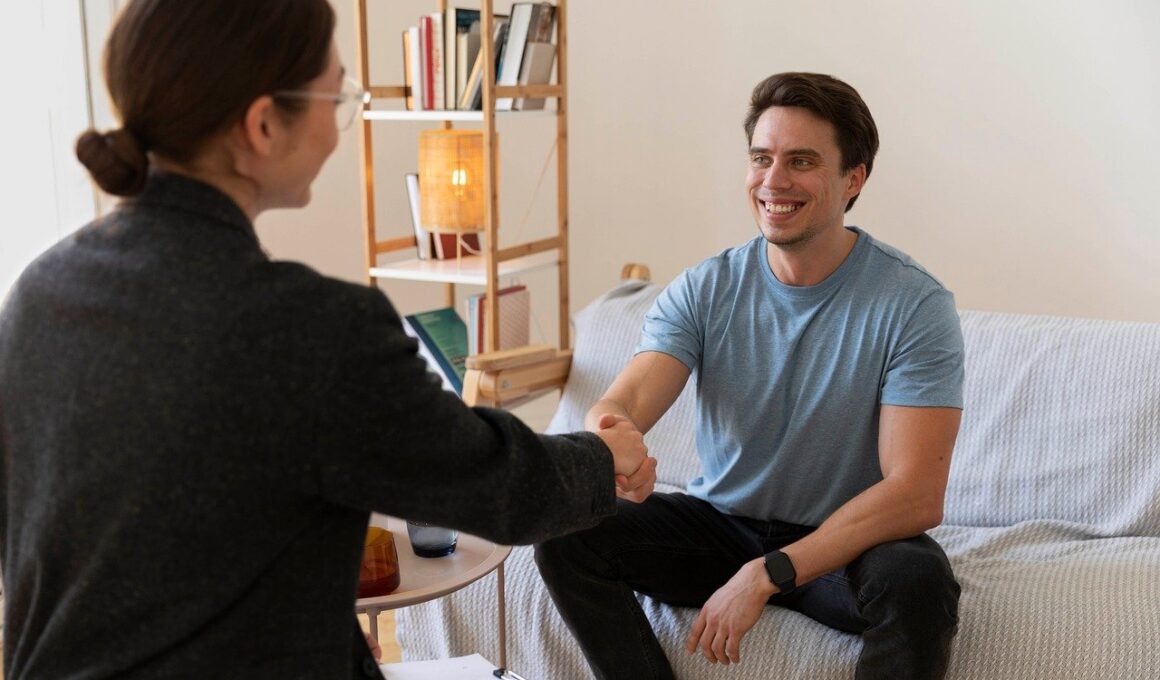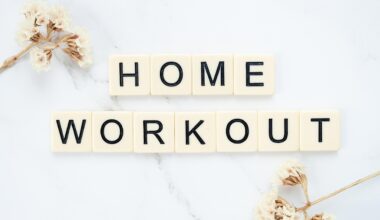Top Exercises to Boost Mental Clarity in Seniors
As we age, maintaining our mental clarity is critical for our independence and quality of life. Engaging in regular physical activities specifically designed for seniors can significantly enhance cognitive function. Various exercises not only improve physical health but also encourage better mental health. Simple activities such as walking or light aerobics have been shown to increase blood flow to the brain, promoting cognitive functions like memory. Proper exercises can also help in reducing anxiety and depression symptoms, which are common in seniors. Incorporating social activities such as group classes further boosts mood and motivation, making exercise more enjoyable. Here’s a guide to some beneficial exercises that can enhance mental clarity in seniors. Emphasizing consistency and sustainability is vital. It’s important to start slow, gradually increasing the intensity as fitness improves. Always consult a healthcare provider before starting a new exercise regimen to ensure that the activities are safe and suitable for each individual’s health status. Investing time in physical activity can lead to significant returns in mental clarity and overall well-being.
Walking: A Simple Yet Effective Activity
Walking is one of the simplest and most accessible exercises for seniors. It promotes cardiovascular health, aids in weight management, and significantly boosts mental health. Even a brief daily walk can enhance mood and cognitive clarity. Walking outdoors allows seniors to connect with nature, which can be soothing and mentally stimulating. Group walks can also provide social interaction, adding to the mental health benefits experienced. Joining walking clubs or local community groups might offer a structured approach and encourage regular participation. There are some things to keep in mind when starting a walking routine. Wear comfortable shoes to support, and choose safe routes without potential hazards. Seniors should also set achievable goals, incrementally increasing the distance and pace to avoid strain and injury. An added benefit is the opportunity to use walking as a time for reflection or mindfulness, enhancing both physical and mental health simultaneously. Pairing walking with music or audiobooks can boost enjoyment, making this simple exercise even more attractive. Over time, the positive effects on mental clarity can be profound and life-changing.
Group exercises can be incredibly beneficial for seniors in boosting mental clarity. Programs that involve group participation encourage social interaction, reducing feelings of isolation that may affect mental health. Classes, such as tai chi, yoga, or dance, offer structured routines that improve both physical fitness and cognitive functioning. These classes foster community, allowing seniors to build friendships and mutual support. Additionally, group exercises often incorporate elements of fun, which makes the process enjoyable. A positive atmosphere enhances motivation, leading to greater consistency in participation. It helps in reducing anxiety and building a sense of purpose, positively impacting overall mental health. Engaging with peers can also lead to sharing experiences and strategies for promoting cognitive health. Many local community centers offer affordable classes tailored for seniors to accommodate different fitness levels. The social component of group exercises is vital for maintaining a healthy mental state. Participants can encourage each other, celebrate milestones, and create a positive reinforcement loop. Group exercises contribute not only to fitness levels but also to shared experiences and a stronger sense of community for seniors.
Cognitive Benefits of Strength Training
Strength training is another key component aiding mental clarity in seniors. This type of exercise helps in building muscle strength while also enhancing overall body function. Stronger muscles contribute to better balance and stability, reducing the risk of falls. Strength training has been shown to improve cognitive function among older adults by maximizing brain health. Exercises like resistance training can increase the production of growth factors that support cognitive functions. Seniors can use light weights, resistance bands, or body weight exercises to enhance their strength safely. It’s important to start with manageable weights, gradually increasing as strength improves. Furthermore, it can have social benefits when done in groups or classes, enhancing motivation and ensuring safety. Proper technique is crucial to prevent injuries during strength training; therefore, it can be beneficial to consult a fitness professional. The mental focus required during resistance exercises can be meditative, leading to improved mood and mental clarity. Participants may notice dramatic improvements in their mental processes, retention abilities, and overall cognitive functioning with consistent engagement.
Yoga and stretching exercises provide numerous benefits for seniors beyond flexibility. Incorporating these exercises in daily routines promotes better mental health and cognitive clarity through mindful movement and relaxation techniques. Practicing yoga can enhance focus, reduce anxiety, and improve mood, creating a more balanced mental state. Gentle stretches and poses help with joint mobility and maintain balance, which is crucial for daily activities. Seniors might find that regular yoga practice leads to an overall sense of calmness and mental clarity. Furthermore, breathing exercises associated with yoga can help in deepening relaxation and reducing stress. Additionally, the community aspect of participating in yoga classes can enhance social connections, further promoting mental health. Classes tailored specifically for seniors offer variations for all fitness levels and can adapt poses for individual needs. Regular practice encourages a supportive environment where seniors feel comfortable exploring their capabilities. Engaging in mindfulness through yoga allows for reflection and improved emotional balance. Making time for yoga can support healthy aging, ultimately contributing to a more fulfilling and mentally sharp lifestyle.
Dance: A Fun Way to Stay Active
Engaging in dance is an enjoyable and effective way for seniors to boost mental clarity. Various styles like ballroom, salsa, or line dancing not only provide physical activity but also add an element of joy and creativity. Dancing helps improve coordination, balance, and flexibility, essential factors for senior fitness. It can also enhance memory as participants learn new steps and routines, engaging their cognitive abilities. The rhythmic nature of dancing stimulates brain functions related to memory and cognitive tasks. Moreover, group dancing offers social interaction, fostering friendships and community bonds, which are vital for mental well-being. Many community centers and studios offer a range of dance classes tailored for seniors, ensuring inclusivity and support. Participation in dance can also evoke happy memories and emotions, enhancing mood and reducing feelings of loneliness. Attending regular dance classes can contribute to a structured routine, which plays a crucial role in maintaining mental clarity. Embracing dance not only enriches physical health but also nurtures emotional wellness through creative expression and social connection.
Incorporating creative hobbies such as painting, gardening, or crafting can also boost mental clarity in seniors. Engaging in arts and crafts stimulates the dexterity and cognitive functions necessary for creating. Gardening is especially compelling; it promotes physical activity and mental relaxation, connecting individuals with nature. The satisfaction of creating something can elevate mood significantly, providing a sense of accomplishment. Not only do these activities foster creativity, but they also encourage focus and mindfulness, which can clear the mind of distractions and improve mental well-being. Hobbies provide a much-needed outlet for expression through engagement in stimulating activities, leading to improved cognitive health. Creating a dedicated space at home for hobbies allows seniors to build a routine that fosters creativity and joy. It is beneficial to try different activities to discover what resonates most. Shared crafting or gardening activities also allow for social interactions, promoting a supportive network and reducing feelings of isolation. This engagement in creative endeavors can lead to improved self-esteem and serve as a preventive measure against cognitive decline. Finally, the therapeutic effects of having hobbies play a significant role in enhancing mental clarity.


